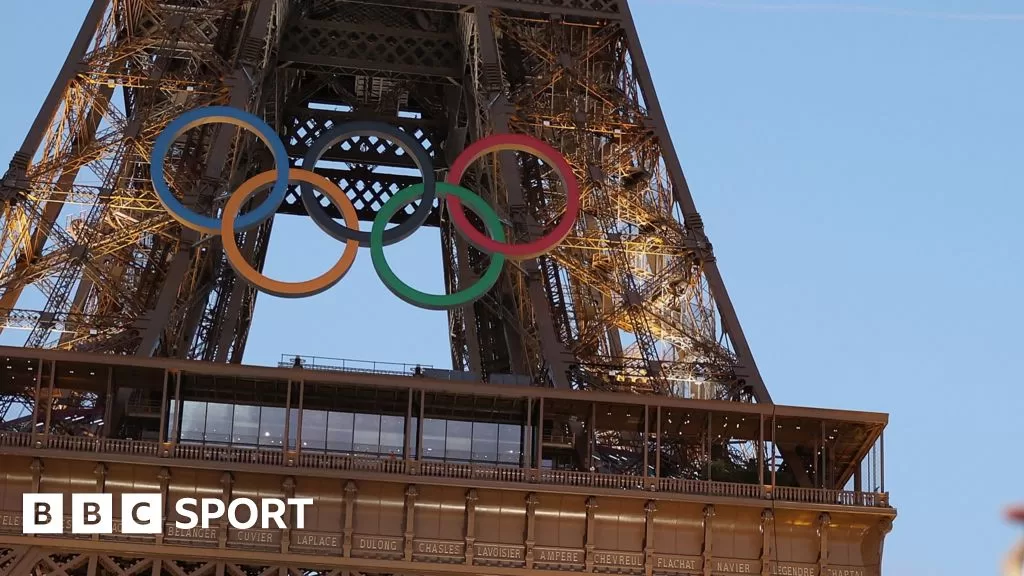A report by University of Portsmouth scientists Rings of Fire, external has warned about the effects of extreme heat on athletes. It found that average July and August temperatures had increased by 2.4°C and 2.7°C respectively over the 100 years since the Olympics was last held in France in 1924.
The Olympic village was originally designed to be free of air conditioning, but in light of concerns about heat, 2,500 temporary cooling units will now be fitted.
There were doubts as to whether triathlon and open water swimming events could be held in the River Seine after it was revealed last month it had failed water quality tests.
However, last week Paris Mayor Anne Hidalgo and other members of the Paris Olympic committee swam in the river to prove it was safe.
The biggest challenge to Paris meeting the targets is likely to come from spectator travel, which can account for about 80% of a sporting event’s emissions.
At London 2012 organisers set a target of selling 75% of tickets to UK fans.
By contrast, this year’s Olympics will be the first where tickets have been sold centrally to all fans worldwide at the same time, which could result in greater numbers of international fans flying to the Games.
Bach told BBC Sport the Games must balance considerations about carbon reduction against “what great impact the Games have with regard to peace, with regard to health, with regard to bringing the entire world together”.
In 2023, France banned short-haul flights where train alternatives exist.
